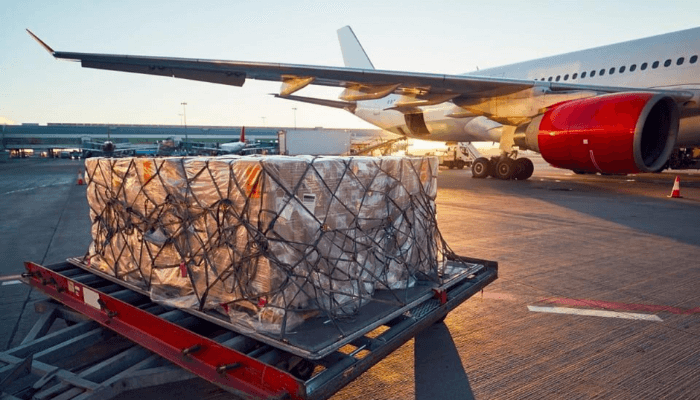Low demand keeps cargo planes away from Nigeria 2 years after airlines’ trapped funds ‘palaver’
Two years have elapsed since cargo planes, specifically designed for freight transport, ceased operations in Nigeria due to the country’s foreign exchange constraints and airlines’ trapped funds. Despite the federal government’s efforts to clear $743 million in outstanding dues, these aircraft have failed to resume service.
Findings by BusinessDay showed that airline operators have since relocated to more lucrative markets, citing Nigeria’s low cargo demand and unprofitability as major deterrents.
“The big cargo planes are not back to Nigeria. Airlines look for profitability in different countries before operating cargo flights. So, if I’m getting an aircraft that comes into Nigeria for instance and I don’t have cargo am taking out of Nigeria, it becomes an issue. This is the major problem the operators are having,” Kingsley Nwokoma, president of the Association of Foreign Airlines and Representatives in Nigeria (AFARN) told BusinessDay.
He explained that before cargo flights stopped coming into Nigeria, after dropping cargo in the country, they went back empty and sometimes to other African countries to pick up cargo which is not profitable for them considering cost of operations.
“If a big aircraft comes into Lagos, Abuja or Kano for instance, because of the long flight time, they have to do a crew rest for safety reasons. They also have to buy fuel and pay landing and parking fees. So, when you put all these costs together and compare it to when that same aircraft goes to Asia Pacific, China or Japan and Asia, it is more profitable,” Nwokoma said.
He said that foreign airlines would rather go to where they can get more profit and where the ease of doing business is high.
According to the AFARN president, the shipments airlines carry now come under the belly of the passenger aircraft such as the Boeing 777, Airbus, adding that once in a while airlines get charter flights for cargo which covers their arrival and departure costs.
“Those good old days when cargo planes come in four to six times a week are gone. Air cargo is supposed to be the fastest and that is why people choose this option but if profitability and the ease of doing business are gone, most customers would prefer the sea cargo option and do futuristic planning,” Nwokoma said.
Cargolux, Saudi Cargo and Emirates Cargo airlines which operated cargo flights into Nigeria have all stopped flights into the country. Only Turkish Airlines cargo planes still carry out skeletal operations in Nigeria and sometimes, the airline is unable to operate even one flight to the country in one week.
Read also: Cargo planes stop Nigeria flight over trapped funds
Airlines now use the belly compartment in passenger aircraft to accommodate cargo. However, importers or exporters with large cargo have had to charter cargo planes to bring in their cargo products into Nigeria at very exorbitant rates.
In 2023, the International Air Transport Association (IATA) disclosed that the trapped funds belonging to foreign airlines operating in Nigeria reached $743,721,097 in March 2023 from $ 662 million in January 2023.
The situation had then forced Emirates and Etihad Airlines to suspend passenger flight operations in Nigeria. As trapped funds continue to increase, cargo airlines also joined the fray and stopped flying into the country in a bid to mitigate the effects of the trapped funds on their operations.
Seyi Adewale, chief executive officer, Mainstream Cargo Limited, told BusinessDay that although there is a slight improvement in trade generally, the present air cargo situation, freighter numbers, and flight frequencies are largely the same.
“The ‘real cargoes’ that make freighter flights thrive have largely not returned. It appears they have moved to sea freight and e-commerce appears to have replaced these ‘real cargoes’,” Adewale said.
He listed the real cargoes to include heavy equipment, tools, aircraft parts, construction and building materials, oil and gas materials, amongst others, adding that many big air cargo driving projects appear to have slowed down or probably lost the yearn for high-costing air freight.
The Mainstream Cargo boss said the freighters that are dogged over time are Allied Air and Turkish Airlines, adding that low demand has kept others away from Nigeria.
“Nigerians cannot at present afford the high cost of air freight. Do remember that we used to get dollars very cheaply before and the economy was swamped with dollars and free funds. All these have disappeared,” Adewale said.
Ikechi Uko, convener, CHINET aviation and cargo conference, told BusinessDay that Nigeria was doing worse than it did two years ago in cargo because the economy of Nigeria was struggling.
“Both imports and exports are struggling in Nigeria. Before, cargo planes came in full and left empty but now our numbers have dropped. This is more of a reflection of the economy than cargo business. Our volumes of air cargo are currently a bit over 100 metric tonnes as against over 200 metric tonnes we did in the past,” Uko said.

